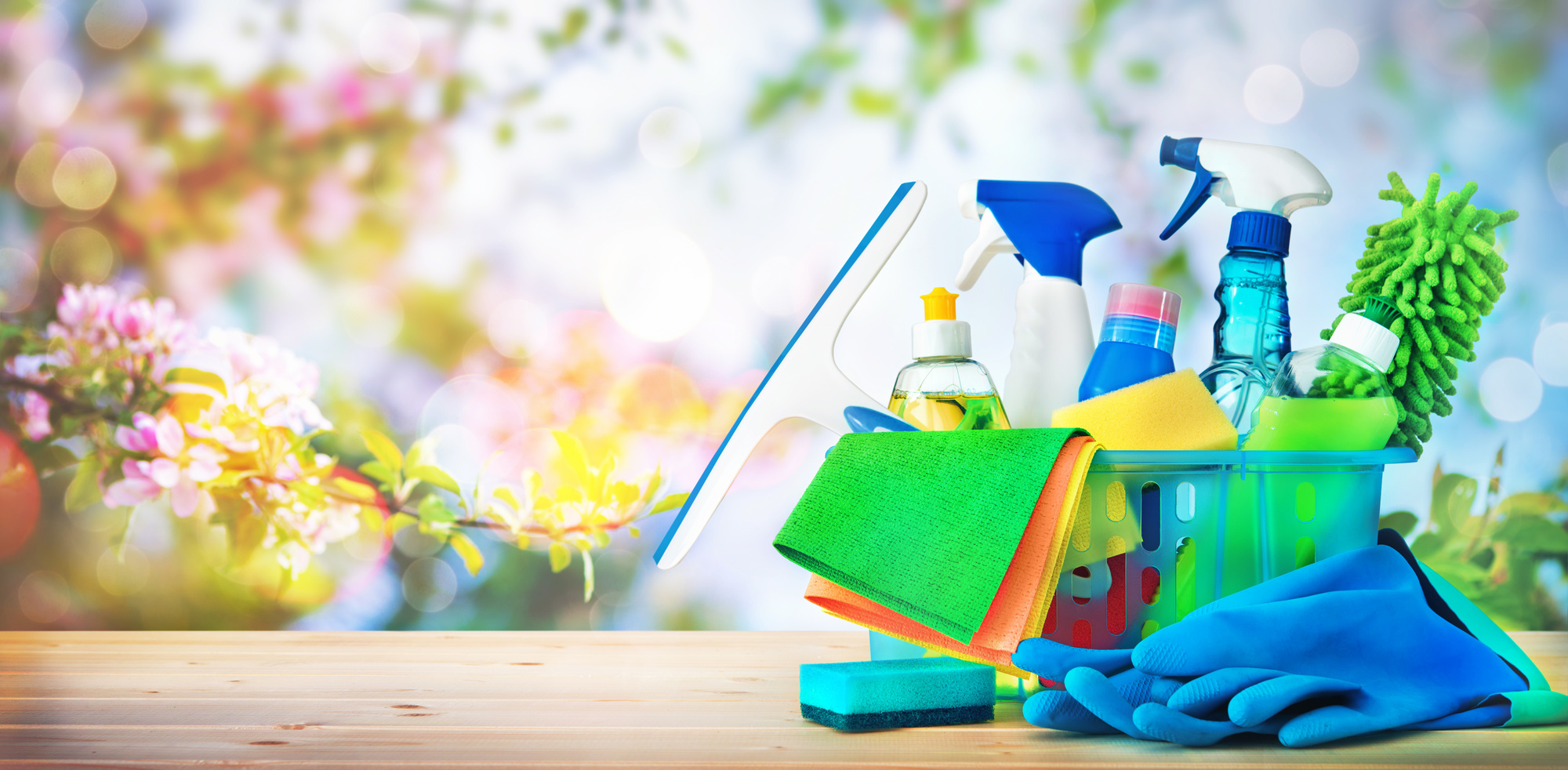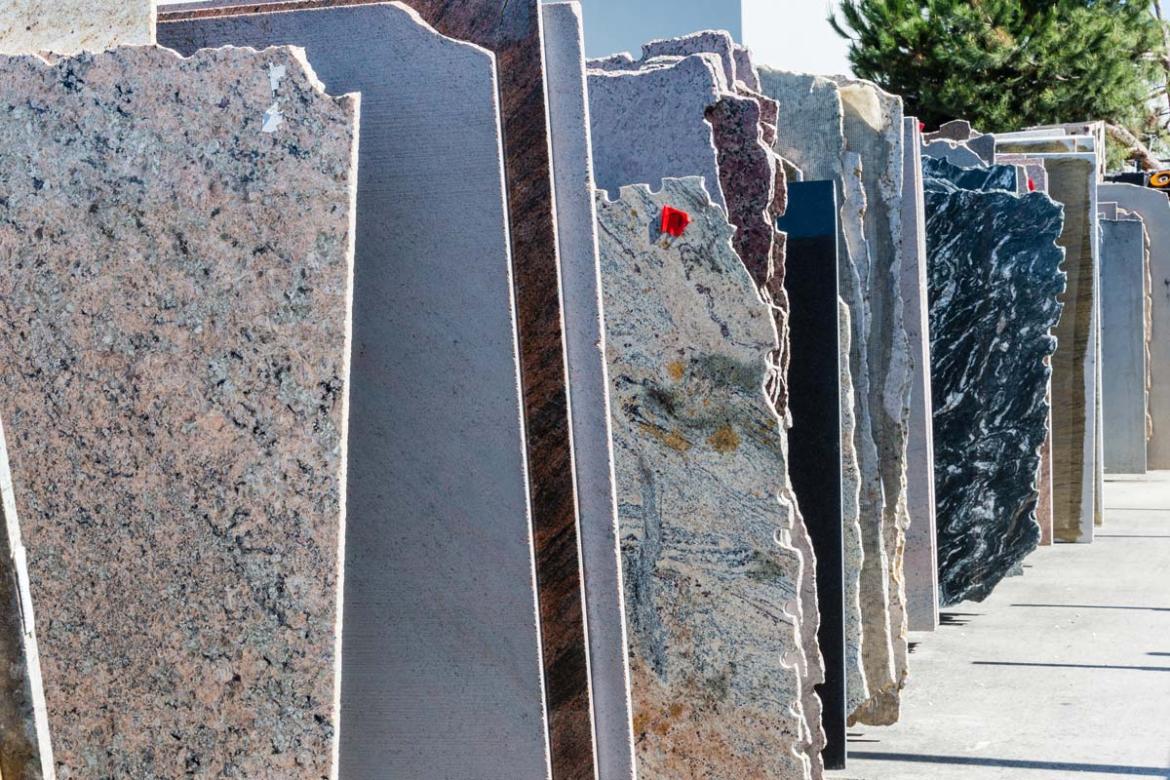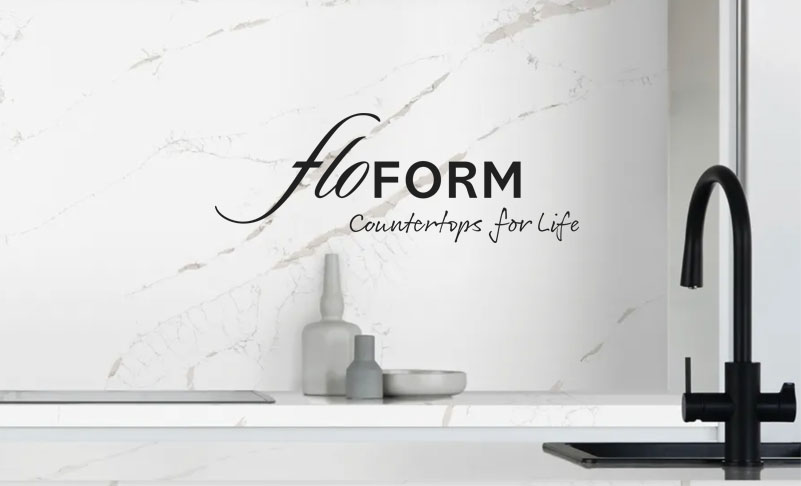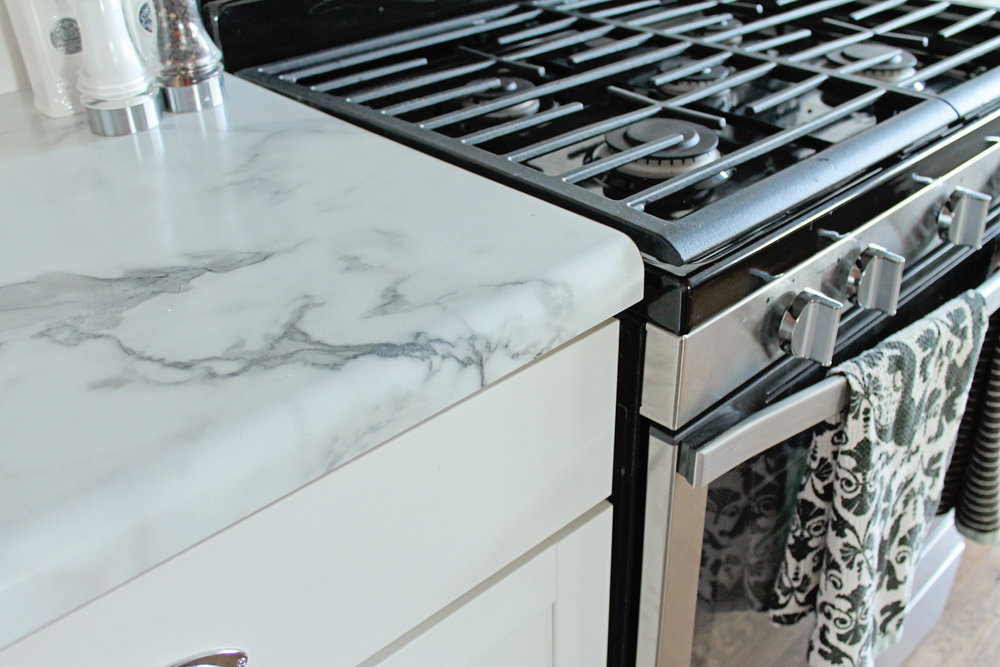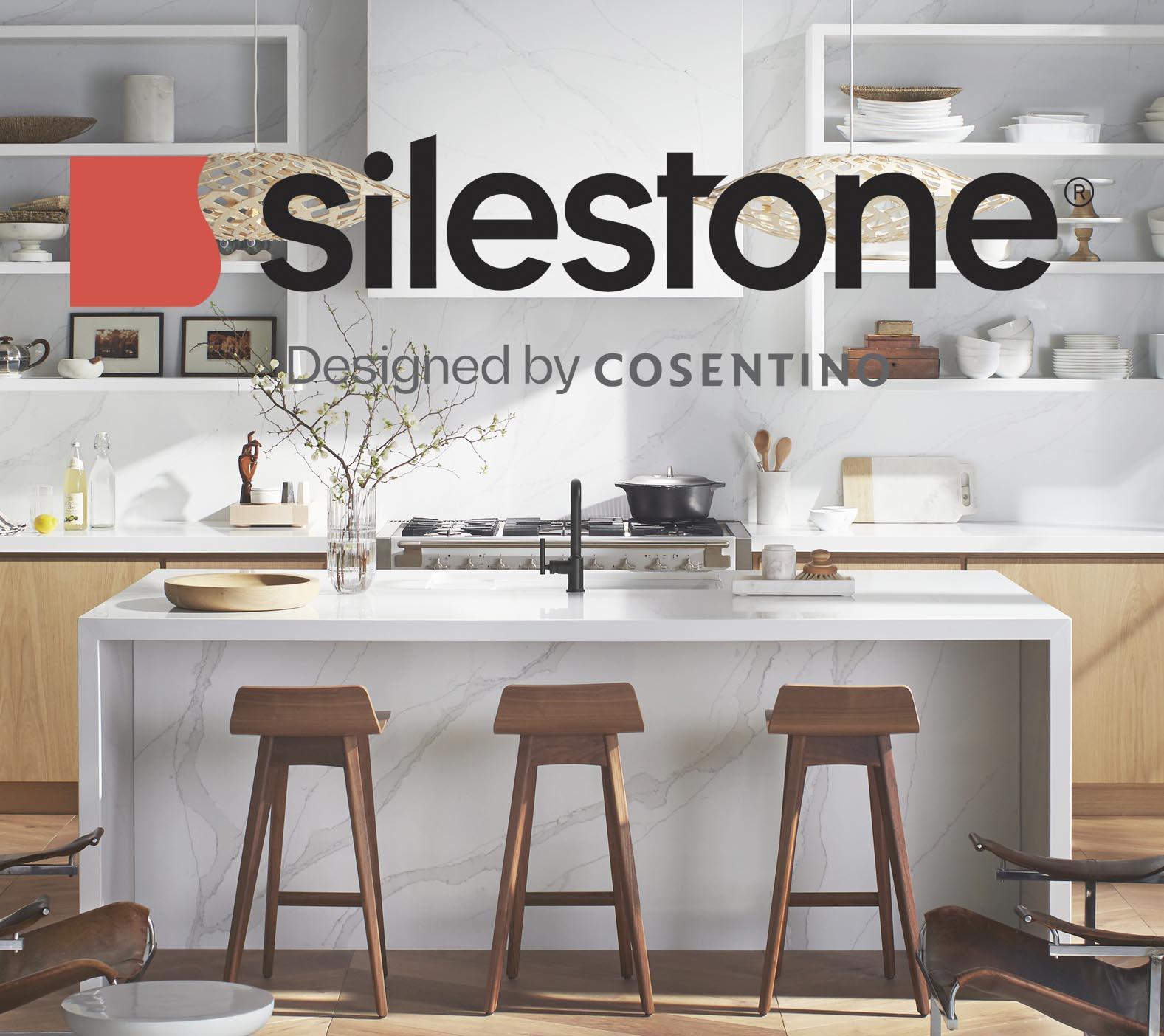Caring for your Countertops
Like any large investment, after all the time, energy, and money you’ve poured into your new countertops, we know you want to take the best care of them so that they last a long time.
With so many products and opinions out there today, we know it can be difficult to parse through it all and know what to do in your own kitchen. To make it easier, we’ve put together a comprehensive list of countertop care tips based on the type of material you have.
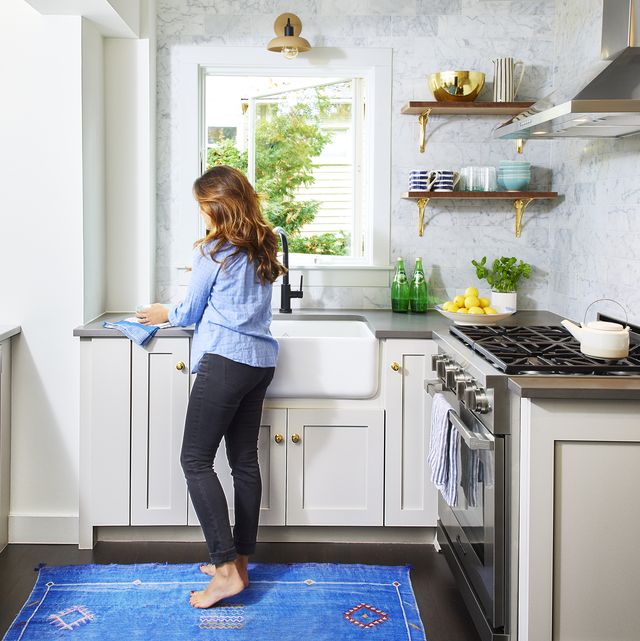
Daily cleaning
For most countertops, the easiest way to keep them clean is simply using a soft cloth that you’ve dipped in mild soap and water.
Whatever surface you’re working with, always clear up all residue before placing anything on top of your counter or having it come in contact with food after cleaning.
Deep cleaning countertops
If you’re dealing with a bigger mess, each type of countertop material calls for specific treatment. Find yours below:
- Quartz: Cambria recommends sticking to soap and water. If there’s any stubborn area, you can use a few drops of vinegar to release dirt and grime. Once you’re done, wipe away the suds, then follow it up with a dry towel to prevent streaking on the natural luster of the stone.
- Porcelain: For persistent and caked-on stains, Infinity recommends using hot water with a soft-fiber sponge to treat the stain and then wipe with a clean cloth. Avoid abrasive sponges or steel wool.
- Wood: You can remove oil or grease with a mild flax soap, following its instructions for dilution. Don’t use any abrasive, chemical, or ammonia cleaners.
- Solid Surface: Dupont recommends using a mild ammonia-based household cleaner, or a dedicated countertop cleaner. Avoid window cleaners, however, as they can leave a waxy build-up that dulls the surface.
- Granite: Granite counters needs to be re-sealed at least once a year – white finishes may need it more often. A good rule of thumb is – if water beads on the counter, it’s still in good shape. If it absorbs, you need to reseal. For deeper cleaning, use a special stone cleaner with a neutral pH. For oil stains, apply baking soda and dish soap to the area. Cover with plastic, let sit overnight and then rinse.
- Laminate: Formica recommends using mild cleaners such as Fantastic® All-Purpose Cleaner, Formula 409® and Pine-Sol® (original formula). Some stains respond well to a paste of baking soda and water, as well.
Heat and other concerns

With all the use your kitchen sees, there’s more than spills and stains that can damage your surfaces.
For example, different countertops can take varying degrees of heat – and while quartz and solid surface are all heat resistant, wood and laminate are not.
Rather than putting any hot items directly on these surfaces, use heat-safe objects, like trivets or heat pads made of cork, bamboo, silicone, or ceramic, to protect countertops from heat damage.
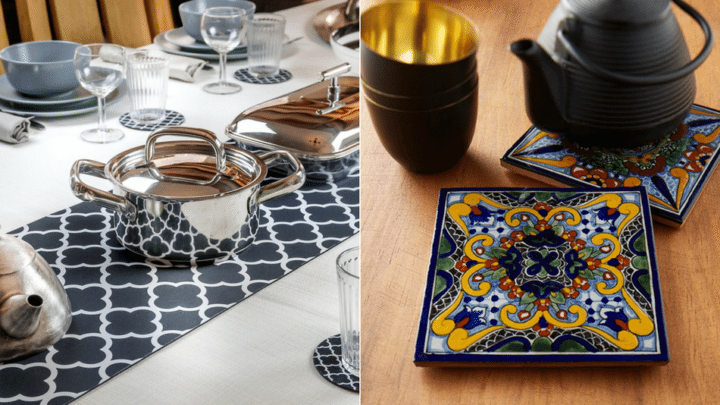
Even surfaces that are heat resistant are just that – resistant, not proof. Keep in mind that they can still be scorched and scratched. Because of this, it’s best to avoid placing hot items (such as hot pots and pans that were just being used on the stove) or sharp and heavy items on your countertops, no matter what material they are made of.
But heat isn’t the only concern.
Avoid direct, repeated impacts (you know, dropping your keys or that bag of groceries) to any surface but especially on wood counters. Over time, no matter how light, repetitive impact will show as dents or marks.
While we’ve covered a lot of ground, if you still have questions, concerns, or a tough stain that you just can’t get out in your kitchen, contact us!
Our local FLOFORM representatives will be happy to help you find a solution that will protect your countertops for years to come.
[gravityform id=”1″ title=”true” description=”true”]
